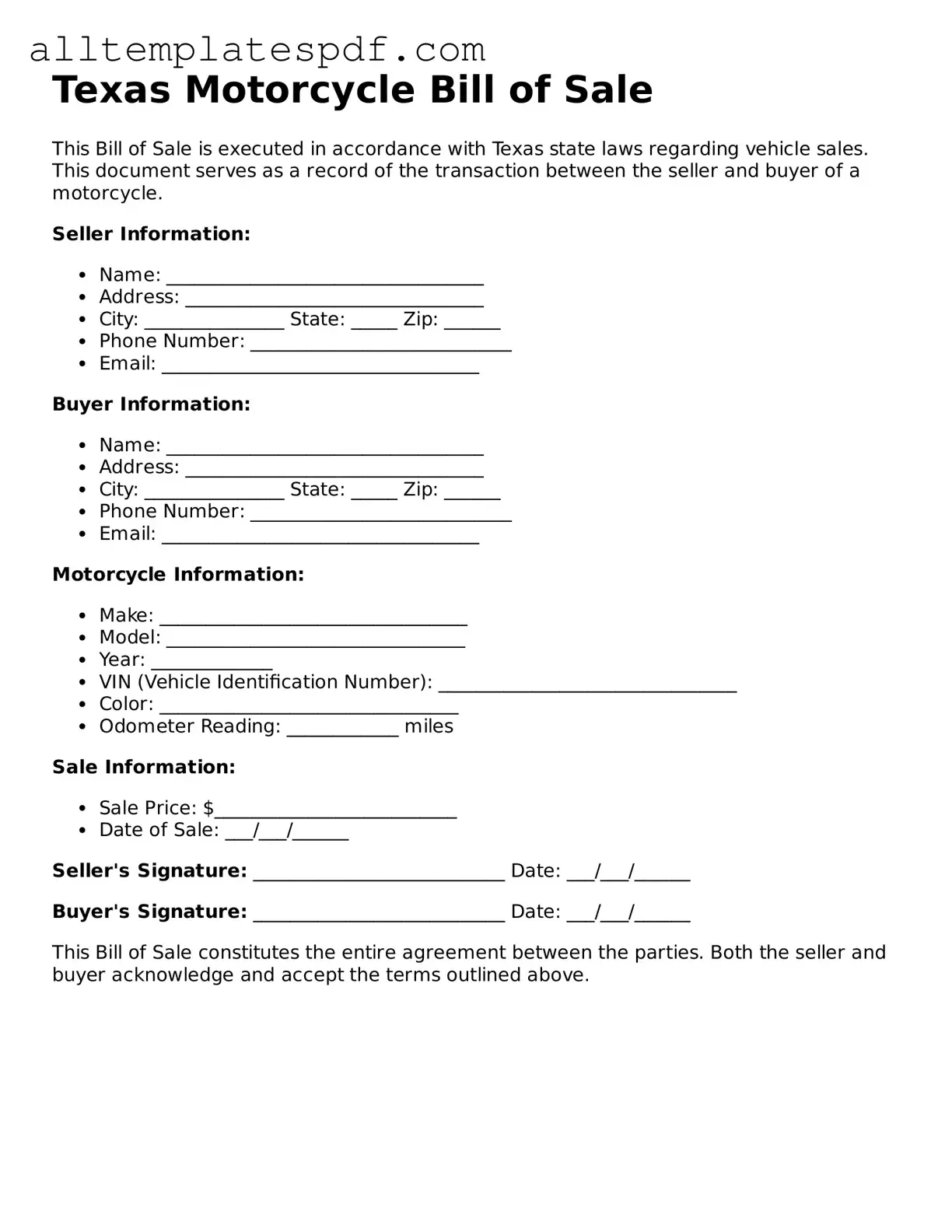Blank Motorcycle Bill of Sale Template for the State of Texas
The Texas Motorcycle Bill of Sale form is a crucial document that serves as proof of the sale and transfer of ownership of a motorcycle in the state of Texas. This form not only protects both the buyer and seller by documenting the transaction but also ensures that the new owner can register the motorcycle legally. To facilitate this process, consider filling out the form by clicking the button below.
Open Editor

Blank Motorcycle Bill of Sale Template for the State of Texas
Open Editor
Fast and easy form completion
Complete Motorcycle Bill of Sale digitally — fast and easy.
Open Editor
or
↓ Motorcycle Bill of Sale PDF Form
